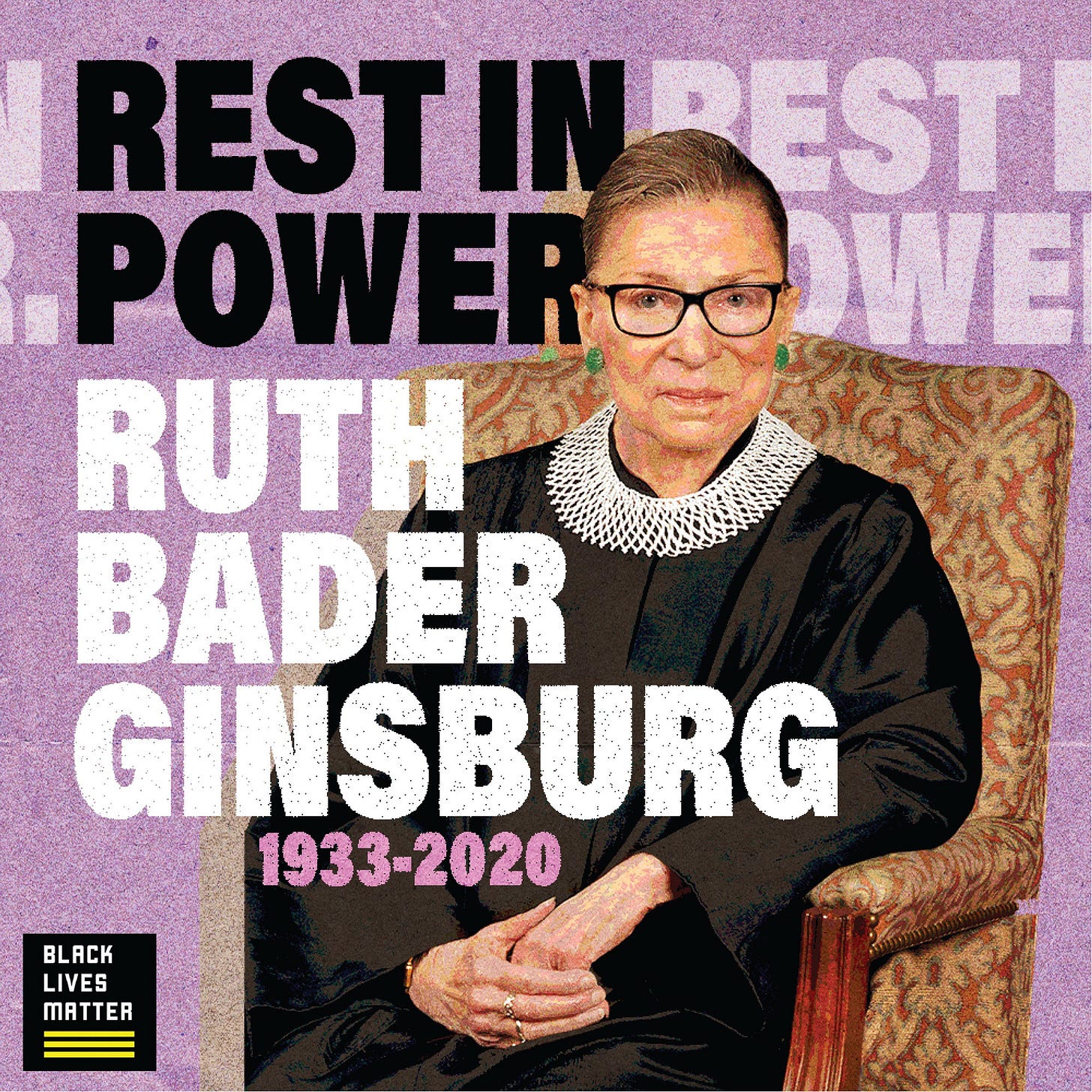A Tzadik and the people
Pr21A: Exodus 17:1-7, Philippians 2:1-13, Matthew 21:23-32

The ongoing story in the first reading for the last few weeks involves two main characters in addition to God: Moses and the people.
Moses is often called the first Tzadik. “Tzadik” (Hebrew: צַדִּיק [tsaˈdik]), is a title in Judaism given to an especially righteous person. Perhaps a famous leader or teacher (like Moses) or an ordinary, not-so-famous person (like your next door neighbor or you.)
We might well guess that Ruth Bader Ginsburg was a Tzadik.
Like Moses, she began life as an ordinary person, and she never forgot the gritty realities faced by women and minorities with the foot of gender and racial discrimination pressing on their necks.
Like Moses, she led. She pioneered. In a wilderness. “When Ginsburg started her work in the 1960s, the Supreme Court had never invalidated any type of sex-based rule… and it had rejected every challenge to laws that treated women worse than men.”[1] Her life’s work “changed the way the world is for American women.”[2]
Like Moses, she moved in high places and elite circles, advocating for those who were not there. Whether writing a brief or a majority opinion or a dissent, she wrote to explain reality, to teach justice and to persuade that change was necessary.
Her sense of right and wrong and justice was deep and it came from her identity as a Jew. “She saw being a Jew as having a place in society in which you are always reminded you are an outsider, even when she, as a Supreme Court Justice, was the ultimate insider. The memory of it… informed what she thought society should be doing to protect other minorities. [She said] ‘It makes you more empathetic to other people who are not insiders, who are outsiders.’”[3]
Following the death of a Tzadik – a Righteous One – like Ruth Bader Ginsburg, we do well to remember and give thanks for her. But we should also remember all the people, known and unknown, who contributed to her ability to persevere and succeed, like the Pioneers, Trailblazers and Supporting Staff who worked with her at the ACLU. Which brings us to the second main character in the wilderness story: “the people.”
In lots of sermons, “the people” get a bad rap because they complain and question God or Moses. The bad rap is undeserved, because for the most part, the people carry on. They don’t turn their backs on the cause or run back to Egypt. They keep moving forward and help their neighbors keep moving forward, so that every day everyone gets a little bit closer to the Promised Land.
Like Gerald Gunther, one of Ginsburg’s law professors at Columbia Law School in 1959. Even though Ginsburg had graduated at the top of her class, no judge would hire her for a clerkship. Gunther intervened. He had always sent his best students to one particular judge. Gunther told that judge that unless he hired Ginsburg, Gunther would never again send him a clerk. “The Ginsburg clerkship apparently was a success; (that judge) kept her not for the usual one year, but for two.[4]
In Jewish mystical tradition, there isn’t only one Tzadik or Righteous One who matters. In fact, in order for the world to continue, there must be at least 36 Righteous or tzadikkim in the world – among “the people” – at any given time. There may be more. Given the wilderness we are wandering in these days, I hope there are many more. They may be people we know. They could probably use our help.
Gunter was one person, helping one unemployed, married, female law graduate to get a job. Thanks in part to his righteous deed, Ginsburg was able to continue growing into her greatness and change the world for us all.
Like the family and friends of Ruth Bader Ginsburg, like her colleagues and co-workers, like Gerald Gunther, may we all do our best to keep moving and help one another keep moving on our way to the Promised Land.
[1]The Conversation, Jonathan Entin October 2, 2018, 6:05 a.m. EDT, Updated September 18, 2020 8:16 p.m. EDT.
[2]NPR.org, Nina Totenberg, September 18, 2020, 7:28 p.m. ET.
[3]The Washington Post, Yonat Shimron, Religion News Service, September 18, 2020 at 9:35 p.m. EDT.

